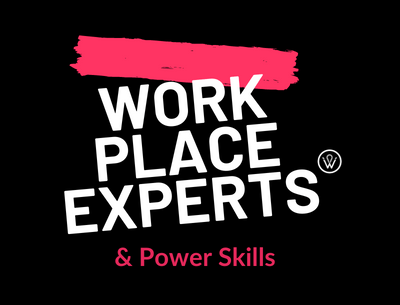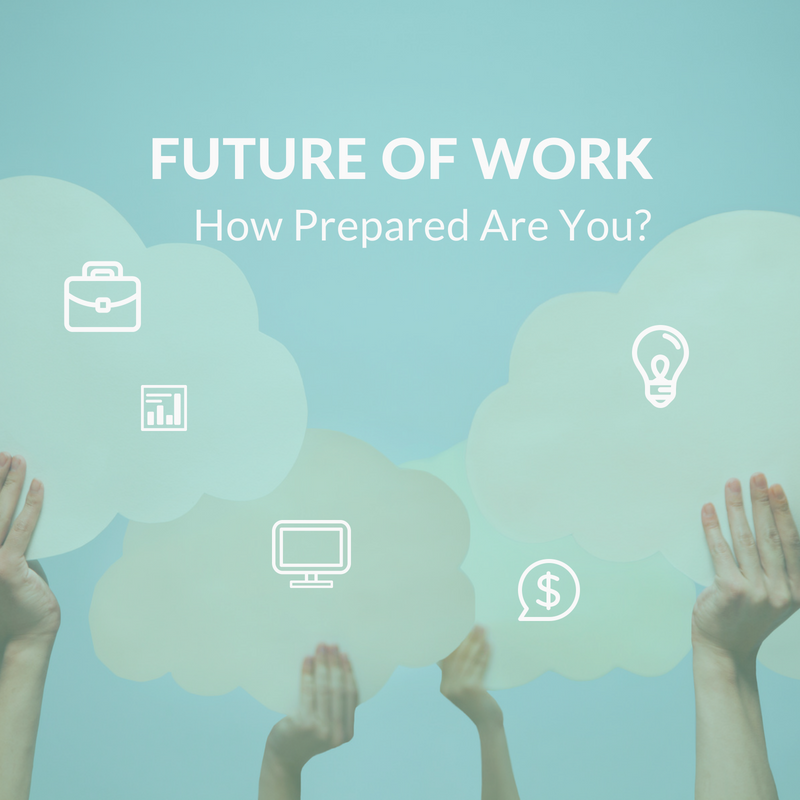
Why Investing in People Pays off?
Should I read this?
Technological innovations that allow us to work from anywhere anytime. The emergence of hybrid work environments are blurring the lines between the traditional silos of work and life. Add to that a societal push from especially younger generations for organisations to consider their impact on greater well-being, and a paradigm shift becomes clear:
The employee is no longer to be treated as a resource but as a human being.
An increasing number of organisations are adopting a people-centric approach that appeals to individuals’ needs. This is in order to attract, retain, grow and unleash their potential.
Read on if you want to know why investing in the Human Experience of your organisation positively impacts business performance and human well-being within and beyond organisational boundaries.
Towards a Human Experience
A paradigm shift is taking place within organisations. It’s simple, yet powerful, and has far-reaching consequences for organisations, workers and the outside world.
Prior even to the corona pandemic, people have been asking themselves what they want from work and life and whether these are even different things.
Throughout the last decades technological advancements have expanded when, where and how we can work. Working From Anywhere (WFA) and asynchronous working opportunities, further accelerated by a pandemic that has led to online & hybrid work environments. These developments blended the boundaries between work and other parts of our lives, so that the traditional silos of ‘work’ and ‘life’ no longer seem to apply.
Add to that a bigger societal movement where individuals are questioning the impact of organisations and work on our greater well-being. This movement requires organisations to consider a different perspective on its impact on the world, groups and individuals.
The paradigm shift?
The employee is no longer to be treated as a resource, but as a human being.
Its implications?
Focus on the Human Experience (HX) is now an imperative for organisations to improve organisational performance and positively impact human well-being within and beyond.
Investing in a people-centric approach isn’t merely a cost item on the balance sheet. But a vital investment to thrive. In this article we demonstrate why organisations need to appeal to individual human needs to boost organizational performance, using these four categories:
- Attracting people
- Retaining people
- Growing people’s potential
- Unleashing people’s potential
First up: There’s no organisation without people. How can you better attract key people through a focus on HX?
Attracting people: no organisation without people
Organisations regularly look externally for people who are needed to grow the business, innovate, add value and get work done. Sometimes there is a dire need for critical skills which are scarce on the market and competition for such people can be fierce. This acute talent shortage is resulting in additional costs for organisations. This is because they need to pay more for new talent with some organisations never actually managing to attract the quality they need at all. A ManpowerGroup 2021 survey found that 69% of organisations who participated have talent shortages and problems with hiring. Additionally, organisations with 250+ employees were found to be losing out to small and micro organisations.
Attracting the right talent to an organisation requires a new look at the value proposition being provided. Simply put, organisations need to work for and appeal to their candidates’ needs. Improving HX was found to attract more quality candidates and the ManpowerGroup survey explored what it is employees are looking for in an organisation. They found the following key factors as being necessary:
- personalisation & career insights
- education, experience & exposure
- flexibility, autonomy & choice
- purpose
Talented people are looking for an opportunity to make a difference and to continue their development. Understanding what it is employees want and meeting those needs is a key to solving the talent shortage challenge. For example, organisations with a learning and development culture are attractive to new talent, as especially younger generations see development opportunities as a key prerequisite to start working at an organisation².
Improving HX in your organisation will increase your attractiveness as an employer, resulting in a larger talent pool to choose from and key hires to grow your organisation.
Next up: Now you have people in your organisation, make sure you hold on to them. The increasingly prevailing mindset among people: grow or go.
Retaining people: Grow or go.
Talent is reported to be leaving organisations at significant rates in 2021 mostly fueled by a desire for more flexibility and meaning. Many employees are reflecting on what work means to them and how they can best spend their time, it seems that priorities have changed and can now be realised. Deloitte⁴ state that the No. 1 reason people quit their jobs is the “inability to learn and grow.” There is also a common belief that it’s “easier to find a role outside of the organisation than in it.” Almost 40% of the young working population in The Netherlands doubts whether they will still work for the organization next year.
Other workers are not impressed by how their organisation treated them during and post pandemic and are looking for appreciation, support and care elsewhere. Organisations providing support during the pandemic received more favourable reviews. Forbes report that the cost of attrition is 0.5 – 2.0 times the annual salary plus hidden costs of morale and further resignations.
LinkedIn’s 2020 Global Talent Trends Report notes that companies that rank highly for employee training see 53% lower attrition. Providing personalized opportunities for growth, development and career building is a reason for people – especially younger generations – to stay happy and engaged with their organisation. Development equals a big chunk of happiness. Additionally, retaining talent requires taking a fresh look at the alignment of individual and organisational values. LinkedIn’s survey calls out the need for genuine empathy across all aspects of the employee journey and the need for organisations to work for employees.
Yet, let’s face it, people will leave.
Helping them to take their next career step outside of your organisation will have them leave with a big smile of gratitude and turn them into lifetime ambassadors, strengthening your brand and becoming an even more attractive employer.
Improving HX through personalized (learning) opportunities, care and value alignment will increase people’s workplace happiness and loyalty, resulting in better retaining key people.
Next up: Developing your people is not only vital to attract and retain people, it’s also essential for future-proofing the capabilities of your organisation and people.
Growing people’s potential: Future-proof people and organisation
Nowadays, the pace of technological innovation, competition, and change (from political, economic and environmental turmoil) is creating a forcefield of uncertainty and opportunity. Organisations will need to continuously adapt fast or get left behind.
Being in a state of continuous adaptation, organisations are increasingly expected to invest in existing talent to fill talent shortages and reduce roles that are in decline, resulting in net zero employment and providing sustainable employability⁷.
The situation is no different for people.
Skills at the workplace change faster than ever due to digitization and automation, with continuous upskilling becoming vital for sustainable employability.
Organisations need to continuously grow their learning and development capabilities at all levels of the organisation to stay relevant and thrive in the future. This means saying goodbye to the yearly personal development cycle and building a continuous learning habit through short perpetual learning cycles with fast feedback loops and positive reflection that stimulates a growth mindset. People with a growth mindset are more resilient, open to change, and adaptive.
Key to creating an organization with continuous learners is to support personalized learning paths that focus on the workers’ interests, unlocking the power of intrinsic motivation, nurturing ownership and boosting engagement.
Another vital ingredient is to integrate peer-support structures into your L&D practices, as such structures dramatically boost learning success in your organisation. People are more likely to achieve their learning goals⁹ and it improves learning among colleagues in the workplace.
Organisations that sustainably grow their learning capabilities make learning a priority, keep experimenting with novel learning practices and demonstrate that learning takes place through all levels of the organisation. No exceptions.
Cultivating personalised, peer-to- peer, perpetual learning opportunities increases your organisation’s capabilities, resulting in a future-fit organisation that can provide sustainable employability for its people.
Last up: Getting the most out of your people is not only about growing their potential, it’s also about unleashing their potential to the fullest.
 Unleashing people’s potential by improving human experience: Happy people. Productive people.
Unleashing people’s potential by improving human experience: Happy people. Productive people.
At one side of the spectrum people can experience bore-out when their capabilities are under-utilised, there are few learning opportunities or when the work environment isn’t sufficiently stimulating. At the other side of the spectrum is burn-out. 1 out of 6 people in the Dutch working population experience burn-out, partly due to the high level of emotional involvement that work demands and the stress that work entails. Research by TNO shows that the average number of days of work-stress-related absenteeism increased from 24 days in 2015 to 30 days in 2019, resulting in massive costs for employers.
The industrial age is over.
The nature of our work has changed. We are not machines, but social creatures that need rest and play to thrive. Organisations need to help people to be happy and healthy to be productive, by helping them get into a flow state at work. A focus on autonomy, mastery, purpose in work experience and learning is key for increasing engagement¹¹.
Most importantly, what makes up for a great Human Experience at work is profoundly personal. People have different ambitions, situations and care about different things, whilst also gaining and draining their energy in different ways.
Accommodate personalised work design that can be seamlessly integrated into people’s life. So that people will be thriving in a flow state instead of drifting off to bore- or burnout. Have people experiment towards their ideal work experience and nurture an environment where the organisation and peers support one another to bring this experience to life. As a result, connection and collaboration will thrive.
The pandemic has again emphasized that the power of belonging (community) is vital in organisations for a great Human Experience. People are looking after one another to stay happy, healthy and productive.
Supporting personalised work experience design with support structures to look after one another – boosts engagement and well-being of your people, resulting in less absenteeism and sustained higher productivity.
Final verdict: Take care of your people.
The jury is in and the verdict is clear. Ahead lies a “feeding two birds with one scone” opportunity for organisations to improve their business performance. Also contribute to greater well-being through investing in their Human Experience.
Organisations need to appeal to and work for individual human needs. This allows them to better attract, retain, grow and unleash their potential. Instead of an organizational push, organisations need to create a personal pull.
How?
By supporting personalised work experiences and learning opportunities that fit seamlessly into people’s personal vision of life. And are supported by a web of trusted companions.
Doing so will lead your people to experience improved health. Also happiness, capabilities and sustainable productivity.
And a future-fit organisation: attractive, productive, and with an innovative edge.
The key take-away?
Improving the Human Experience in your organisation positively impacts business performance and human well-being.
And then we haven’t even considered the long-lasting positive ripple-effects your organisation will create in society from people being better able to take care of loved ones and themselves.
Take care of your people, and they will take care of your organisation.
 About Prototype You en Wouter Smeets
About Prototype You en Wouter Smeets
Prototype You helps employees experiment towards an energising work experience that makes them happy, healthy and productive. Wouter co-founded Prototype You so that people can help one another grow on a journey of lifelong learning, and cultivate that Nelson Mandela mindset. “I never lose. I either win or learn.” And let’s not forget: Life is short and work makes up a big chunk of that. Let’s work together to make sure people leave work with more energy than when they started.
Check out ‘Prototype You’ Profile
So, where to go from here?
Are you curious to learn how you can boost your business performance and employee well-being by improving the Human Experience in your organisation? We love to help organisations move forward on their people-centric journey.
Feel free to reach out at wouter@prototypeyou.nl or book our 30-min Prototype You demo right here. You’ll experience our hands-on approach, walk away with a prototype of an energising work day and an actionable plan to get closer to it with support from a buddy.
Further reading
- The Talent Shortage. ManpowerGroup. 2021
- Gedreven door ontwikkeling. Een onderzoek naar de werkbehoeften van millennials en generatie Z. Careerwise. Spring 2021
- The Great Resignation: How employers drove workers to quit. BBC, By Kate Morgan. July 1, 2021
- Leading the social enterprise: Reinvent with a human focus. 2019 Deloitte Global Human Capital Trends.
- Why Your Employees Are Leaving En Masse And The Surprising Factor That Will Keep Them. Forbes. Melanie Fellay. July 28, 2021
- 2020 Global Talent Trends. 4 trends changing the way you attract and retain talent. LinkedIn Talent Solutions.
- Top 21 Trends for 2021: Transforming Talent and the Future of Work. ManpowerGroup. 2021
- The changing nature of work and skills in the digital age. Publications Office of the European Union. 2019
- Hester, R., Gore, J.S. Mechanisms that Foster Relational Motivation. Psychological Studies 60, 50–55 (2015).
- Burn out feiten en cijfers in Nederland. Burn Out Poli. 2021
- Drive: the surprising truth about what motivates us. Daniel H. Pink. 2009
- Four-day week ‘an overwhelming success’ in Iceland. BBC. July 6, 2021







